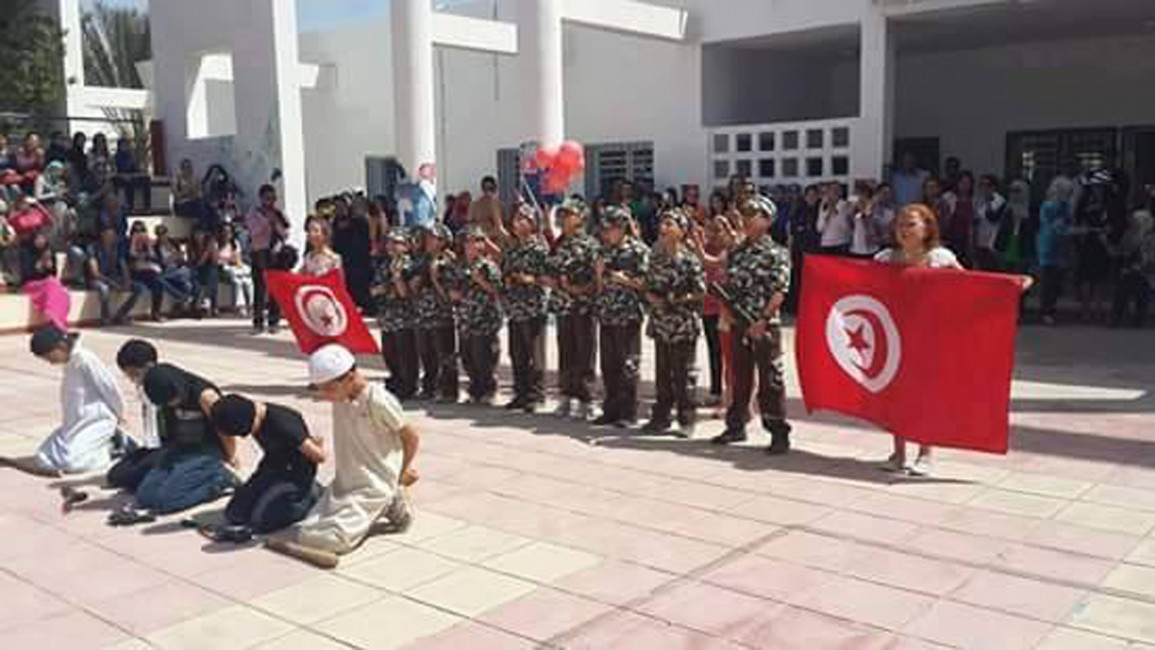
Tunisian school criticised for 'army versus terrorist' play
Tunisian school criticised for 'army versus terrorist' play
Photograph from school play of 'soldiers' capturing 'terrorists' sparks debate in Tunisia about Islamophobia and the responsibilities of educators.
2 min read
The picture was removed from the school's website
The soldiers sport guns while supporters hold aloft the Tunisian flag. Their captives kneel before them, heads bowed and hands cuffed, and two appear to be hooded. A crowd gathers to watch the spectacle.
But the scene, captured in a photograph, is not from a recent military operation in a country plagued by terrorism - the soldiers and the prisoners are children, apparently taking part in a school play in the city of Sfax.
The picture, uploaded to Facebook on May 5, has sparked debate on social media about Islamophobia in Tunisia, the indoctrination of children, and criticism of the school for allowing youngsters to take such roles.
But the scene, captured in a photograph, is not from a recent military operation in a country plagued by terrorism - the soldiers and the prisoners are children, apparently taking part in a school play in the city of Sfax.
The picture, uploaded to Facebook on May 5, has sparked debate on social media about Islamophobia in Tunisia, the indoctrination of children, and criticism of the school for allowing youngsters to take such roles.
School Plus, a private language institution based, described the scene as "a tribute to the soldiers of the nation in the form of a silent play, presented by the students". The edit trail of the post shows that several pictures were removed on Thursday.
There were mixed reactions to the picture. Some were outraged, describing it as "surreal" and linked it to internalised Islamophobia, especially in relation to the "Islamic" clothes worn by the child captives - used as a stereotype for terrorists despite it being worn by many Tunisians. This, they argued, should not be reinforced among children.
One poster, Abdelaziz Jaziri, said: "A surreal scene from a private school in Tunisia? Even in a country where Islamophobia and contempt are rife."
There were also criticisms for the school administration and the parents for not reacting, and calls for administrators to be investigated and held accountable.
Others defended the school. One Tunisian commented: "Producing a play about soldiers who captured terrorists... is a crime for you, but [so is] forcing them to learn the Quran and encouraging him to take part in jihad during classes is education" - a reference to the rise of religious schools and concerns over extremism.




